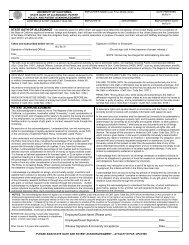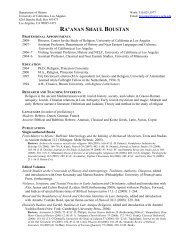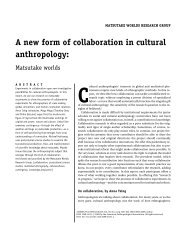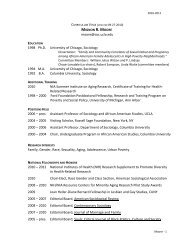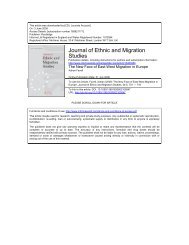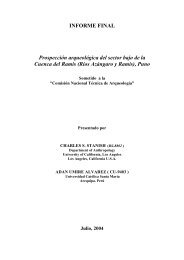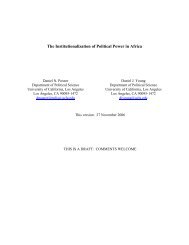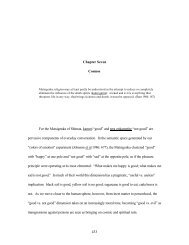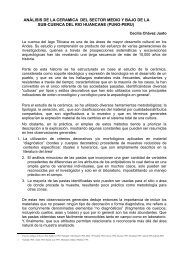The Long-Term Effects of Africa's Slave Trades - Social Sciences ...
The Long-Term Effects of Africa's Slave Trades - Social Sciences ...
The Long-Term Effects of Africa's Slave Trades - Social Sciences ...
Create successful ePaper yourself
Turn your PDF publications into a flip-book with our unique Google optimized e-Paper software.
and these countries continue to be the most underdeveloped today. In other<br />
words, the slave trades may be correlated with unobserved country characteristics,<br />
resulting in biased estimates <strong>of</strong> the effect <strong>of</strong> the slave trades on<br />
economic development.<br />
I pursue a number <strong>of</strong> strategies to better understand the reason behind<br />
the relationship between slave exports and current economic performance.<br />
First, I review the evidence from African historians on the nature <strong>of</strong> selection<br />
into the slave trades. I also use historic data on pre-slave trade population<br />
densities to examine whether it was the less developed parts <strong>of</strong> Africa that<br />
selected into the slave trades. Both sources <strong>of</strong> evidence show that it was actually<br />
the most developed areas <strong>of</strong> Africa that tended to select into the slave<br />
trades. I discuss the reason behind this seemingly paradoxical relationship<br />
in detail. Second, I use two sets <strong>of</strong> instruments to estimate the causal effect<br />
<strong>of</strong> the slave trades on subsequent economic development. <strong>The</strong> first instruments<br />
are the sailing distances from each country to the nearest location <strong>of</strong><br />
demand for slave labor in each <strong>of</strong> the four slave trades. <strong>The</strong> second is initial<br />
population density, controlling for current population density in the second<br />
stage. Like the OLS coefficients, the IV coefficients are negative and significant,<br />
suggesting that increased extraction during the slave trades caused<br />
worse subsequent economic performance. <strong>The</strong> final strategy that I pursue<br />
is to control for a number <strong>of</strong> additional observable country characteristics.<br />
<strong>The</strong>se results also indicate that the slave trades did have a negative effect<br />
on subsequent economic development.<br />
I then explore the precise channel <strong>of</strong> causality underlying the relationship<br />
between slave exports and subsequent economic development. Using<br />
historical evidence as a guide, I examine whether the procurement <strong>of</strong> slaves<br />
through internal warfare, raiding, and kidnapping resulted in subsequent<br />
state collapse, ethnic fractionalization, and a deterioration in the quality<br />
<strong>of</strong> judicial institutions. I find support for the view that the slave trades<br />
resulted in weak, politically fragmented states, ethnic fractionalization, and<br />
poor judicial institutions.<br />
<strong>The</strong>se findings complement the research <strong>of</strong> Engerman and Sokol<strong>of</strong>f (1997,<br />
2002) and Sokol<strong>of</strong>f and Engerman (2000), which shows that slavery in the<br />
New World resulted in the evolution <strong>of</strong> institutions that were not conducive<br />
for economic growth. 2 My results show that not only was the use<br />
<strong>of</strong> slaves detrimental for a society, but the production <strong>of</strong> slaves, which occurred<br />
through domestic warfare, raiding, and kidnapping, also had negative<br />
2 Also see Lagerlöf (2005) who shows that within the U.S., the states that relied the<br />
most heavily on slavery in the past have the lowest income levels today.<br />
3




